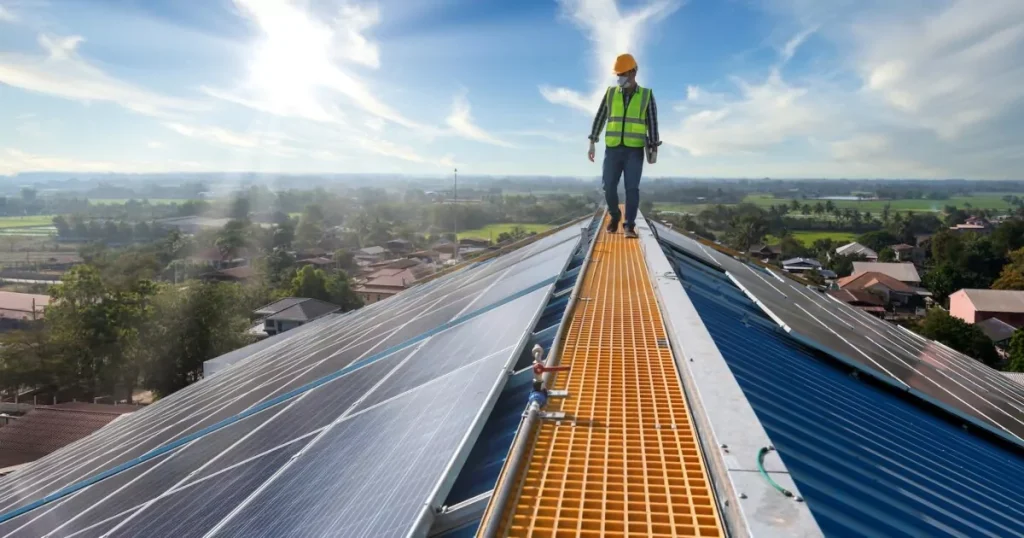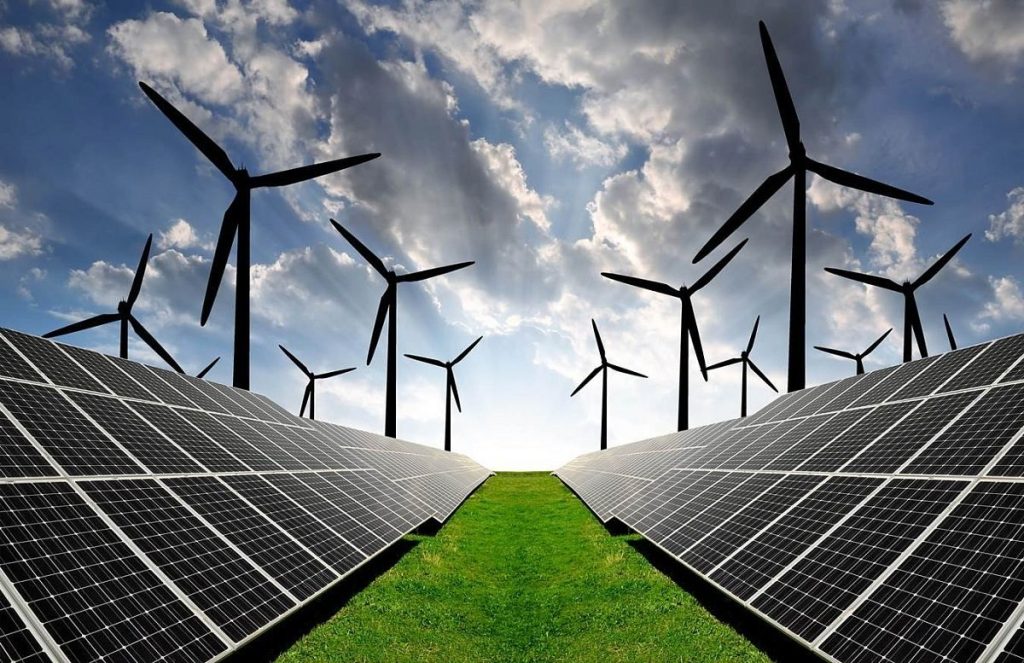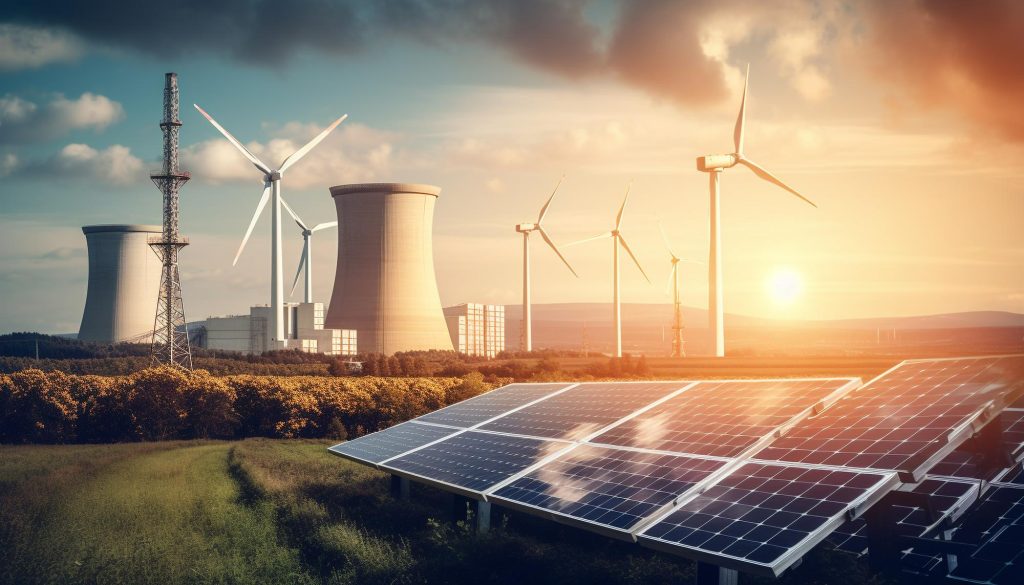Table of Contents
The world is at a pivotal moment in its approach to power generation, with renewable energy sources increasingly seen as the future of electricity. As concerns about climate change, environmental degradation, and energy security grow, renewable energy offers a sustainable and economically viable solution to meet the global demand for power. This shift from traditional fossil fuels to renewable energy is not just a trend; it represents a fundamental transformation in how we produce, consume, and think about energy. The transition to renewable energy is essential for achieving a sustainable future and mitigating the adverse effects of climate change.

The Rise of Renewable Energy
Renewable energy, derived from natural resources that are replenished on a human timescale, includes sources like solar, wind, hydroelectric, geothermal, and biomass. Unlike fossil fuels, which are finite and contribute significantly to greenhouse gas emissions, renewable energy sources offer a cleaner, more sustainable way to power our world.
Over the past few decades, there has been significant growth in the adoption of renewable energy technologies. Solar and wind energy, in particular, have seen exponential increases in capacity and deployment. According to the International Energy Agency (IEA), renewable energy accounted for nearly 29% of global electricity generation in 2020, a figure that is expected to rise sharply in the coming years. This growth is driven by a combination of technological advancements, decreasing costs, and supportive government policies.
Benefits of Renewable Energy
One of the most compelling arguments for renewable energy is its environmental benefits. Unlike fossil fuels, renewable energy sources produce little to no greenhouse gas emissions during operation. This reduction in emissions is critical for combating climate change, as the energy sector is one of the largest contributors to global carbon dioxide emissions. By transitioning to renewable energy, we can significantly reduce our carbon footprint and help stabilize the planet&8217;s climate.
In addition to its environmental benefits, renewable energy also offers economic advantages. The renewable energy sector has become a significant source of job creation, with millions of jobs generated in areas such as solar panel manufacturing, wind turbine installation, and energy efficiency services. As the industry continues to grow, it is expected to create even more employment opportunities, contributing to economic development and energy independence.
Furthermore, renewable energy enhances energy security by reducing dependence on imported fossil fuels. Countries that invest in domestic renewable energy resources can reduce their vulnerability to volatile global energy markets and geopolitical tensions. This increased energy security not only benefits individual nations but also contributes to global stability.

Technological Advancements and Cost Reductions
The rapid growth of renewable energy has been fueled by remarkable technological advancements and significant cost reductions. Solar photovoltaic (PV) technology, for example, has seen dramatic improvements in efficiency and affordability. The cost of solar panels has decreased by over 80% in the last decade, making solar energy one of the cheapest sources of electricity in many parts of the world.
Similarly, wind energy technology has evolved, with modern wind turbines becoming larger, more efficient, and capable of generating more electricity at lower costs. Offshore wind farms, which harness the stronger and more consistent winds found at sea, are also gaining traction, further expanding the potential of wind energy.
Advancements in energy storage technologies, such as batteries, are also playing a crucial role in the renewable energy transition. Energy storage systems enable the integration of intermittent renewable energy sources like solar and wind into the grid by storing excess power for use when generation is low. This helps to ensure a stable and reliable supply of electricity, addressing one of the main challenges associated with renewable energy.
Challenges and the Path Forward
Despite the many benefits of renewable energy, there are challenges that must be addressed to fully realize its potential. One of the primary challenges is the intermittency of some renewable energy sources. Solar and wind power are dependent on weather conditions, which can lead to fluctuations in electricity generation. To mitigate this issue, a combination of energy storage solutions, grid modernization, and diversified energy portfolios is needed.
Another challenge is the need for significant investment in infrastructure. Transitioning to a renewable energy-based system requires upgrading existing power grids, developing new transmission lines, and creating storage facilities. While these investments are substantial, they are necessary to support the large-scale integration of renewable energy and to ensure a reliable energy supply.
Policy support is also critical for the continued growth of renewable energy. Governments play a key role in shaping energy markets through regulations, incentives, and research funding. Policies that promote renewable energy development, such as tax credits, feed-in tariffs, and renewable energy mandates, are essential for accelerating the transition to a sustainable energy future.
The Future of Power Generation
The future of power generation is undoubtedly renewable. As the world moves away from fossil fuels, renewable energy will play an increasingly dominant role in meeting global energy needs. The transition to renewable energy is not only a response to the urgent need to address climate change but also an opportunity to build a more resilient, sustainable, and equitable energy system.
With continued innovation, investment, and policy support, renewable energy has the potential to provide clean, affordable, and reliable power for billions of people around the world. The path to a sustainable energy future is clear, and the time to embrace renewable energy is now. By doing so, we can create a world where power generation is not only sustainable but also beneficial for the planet and all its inhabitants.

Conclusion
Renewable energy is no longer just an alternative; it is the future of power generation. Its environmental, economic, and social benefits make it a key component of a sustainable and secure energy system. As we look ahead, the continued expansion of renewable energy will be essential for addressing the challenges of climate change, promoting economic growth, and ensuring a stable and prosperous future for generations to come. The journey toward a renewable energy future is well underway, and its success will shape the course of the 21st century and beyond.
